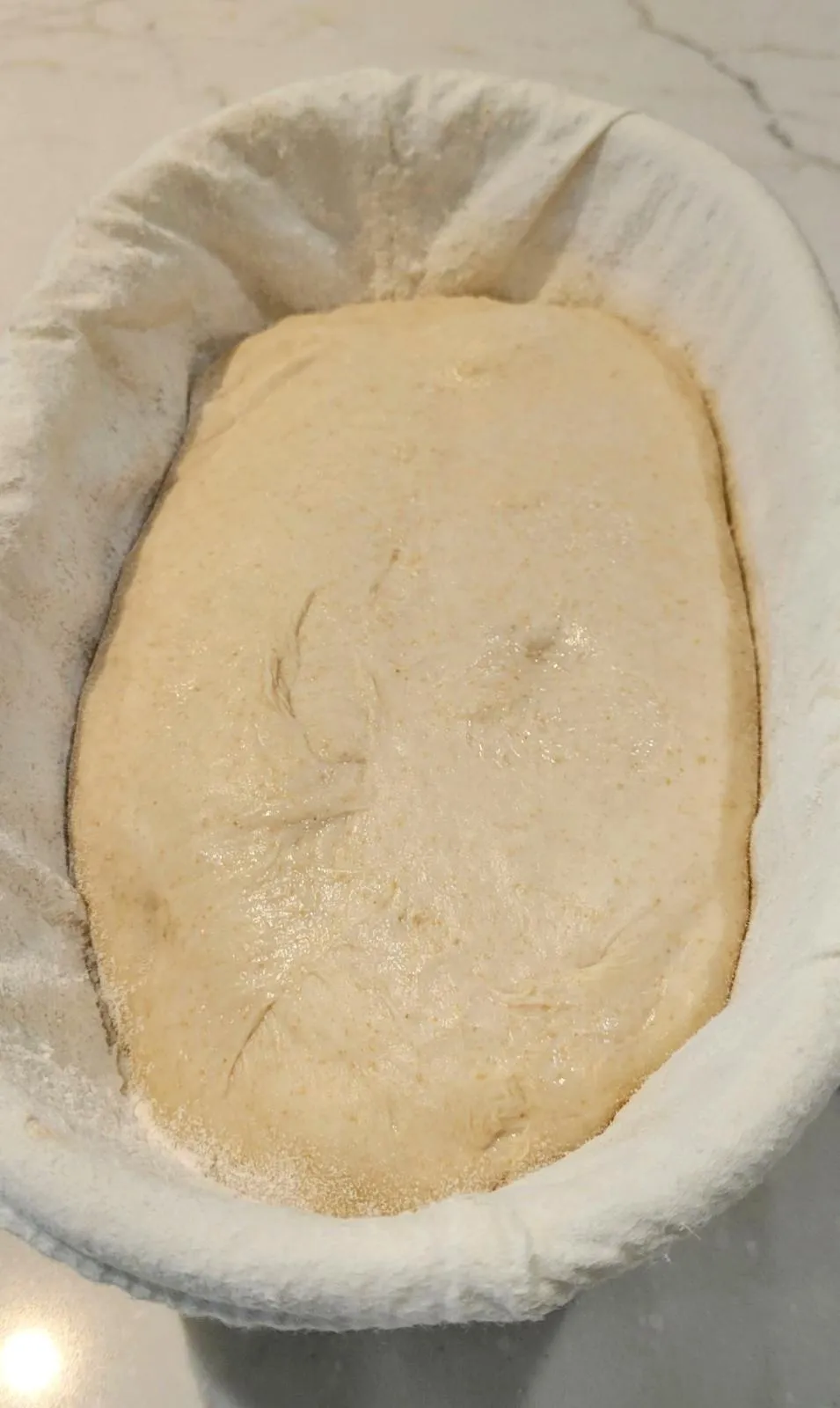
I tend to retard my shaped sourdough batards in my refrigerator (set at 37 degrees F) for 12 - 18 hrs. My question involves how much of a rise I should expect from the dough during that time. The dough does seem to rise, but not a large amount. It does pass the poke test straight from the fridge. Also, it rises quite well during bulk fermentation at 78 degrees F. I would be interested in opinions and suggestions. Thank you.
Amount of time during warm bulk (and temp of dough) affects how much activity there is in the dough going into the fridge. Less warm bulk and lower temp of dough going in would cause a slower process in the fridge.
Also fridges arent necessarily evenly cooled. Top rack may be warmer than bottom which affects fermentation. Also back of fridge may be colder than front. Try measuring to see if you are curious.
I do retarded bulk in middle-top of fridge towards the front of the shelf.
I do a long retarded bulk for my demi baguettes (18-20 hours) and I get a nice rise with a smooth top. I need to do this as my apartment is a penthouse of a high rise and is always too hot.
I usually don't notice any rise on sourdough loaves in the fridge, or a minimal rise. It's normal. Somehow it's different with yeast-based dough, even with a tiny amount of yeast which takes a similar bulk time as a sourdough could, it rises significantly in the fridge.
FYI, poke test doesn't work on cold dough.
Yes, the retard is a dark art. The dough doesn't talk to us during a retard.
Recently, I had to retard one loaf in a frij at 4C and another in a frij at 6.5C. Both loaves looked the same when they came out of the fridges and on the peel, with no spread.
But the warmer loaf had a much poorer ear and poor oven spring - it must have been overproofed, but you'd never know until it was baked.
Lance
cold dough will compress alot more CO2 while heat will expand gas. As well as that a cold dough in a fridge @ 4C will put yeast to sleep while LAB are barely active so the net result is alot more gas for a higher oven spring and a sourer bread...if you leave too long the LAB will eventually degrade the gluten....
cold=compression of gas
heat=expansion of gas